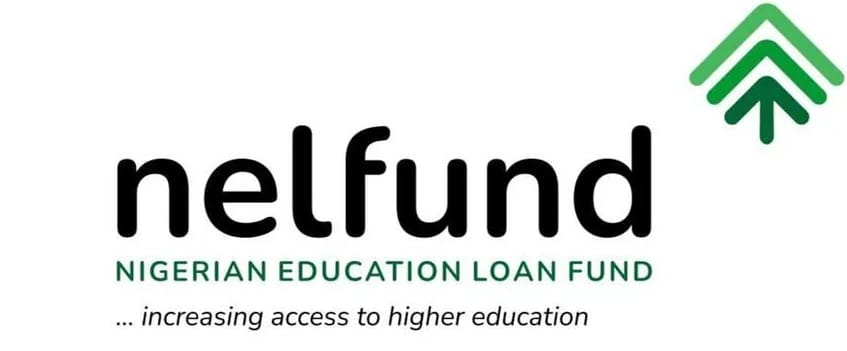The Nigerian Education Loan Fund (NELFUND) has once again emphasized the importance of timely and accurate data submission by tertiary institutions across the country, urging all accredited universities, polytechnics, and colleges of education to collaborate effectively with the agency in updating and uploading student records to its official Student Verification Portal.
This call comes as part of NELFUND’s ongoing preparations for the seamless rollout of student loans for the 2025/2026 academic session. The agency made it clear that the cooperation of institutions is pivotal to ensuring that every eligible student can successfully access the government-backed student loan program without unnecessary delays or data-related complications.
NELFUND Emphasizes Accurate and Timely Upload of Student Data
According to NELFUND, all tertiary institutions are expected to promptly upload both returning and newly admitted students’ data to the Student Verification System — an integral part of the Student Loan Access System (SLAS). The fund stressed that institutions must ensure all records are accurate, consistent, and complete before submission.
The agency explained that institutions must use each student’s unique admission number and other approved identifiers during the upload process to ensure transparency and prevent duplication or errors. Schools are also encouraged to designate dedicated data officers who will liaise directly with NELFUND to monitor progress and promptly resolve any technical issues encountered during the verification process.
Only Verified Students Will Be Eligible for Loans
NELFUND clarified that only students whose data have been properly uploaded, verified, and approved through the portal will be considered eligible for loan disbursement. Inaccurate or incomplete data entries could result in automatic disqualification or delays in loan approval.
The verification exercise will enable NELFUND to cross-check student enrollment statuses, confirm institutional affiliations, and validate identification details before approving any financial assistance. Once a student’s record passes all verification stages, their loan application status on the SLAS portal will be updated to “Disbursed,” indicating that funds have been successfully processed and released.
A Step Toward Transparent and Efficient Student Loan Management
The student data upload initiative forms part of NELFUND’s broader goal to create a transparent, technology-driven system that ensures accountability in managing public education loans. By integrating institutional data into the SLAS database, NELFUND hopes to eliminate bottlenecks, prevent fraud, and ensure that only genuine students of accredited institutions benefit from the scheme.
The agency noted that collaboration with tertiary institutions is key to achieving the government’s vision of a financially inclusive education system where no Nigerian student is denied access to higher education due to lack of funds.
The Role of Tertiary Institutions in the New Student Loan Framework
Under the new arrangement, every tertiary institution is required to play an active role in verifying and maintaining accurate student records. This includes ensuring that student data — such as name, matriculation number, level, course of study, and admission status — matches the details submitted during the loan application process.
Institutions are also expected to promptly report any discrepancies, withdrawals, deferments, or changes in a student’s enrollment status to NELFUND to prevent misuse or irregularities in the loan system. This collaborative framework, according to the agency, will foster mutual trust and streamline future disbursements.
NELFUND’s Commitment to a Fair and Accessible Education Loan System
NELFUND reaffirmed its commitment to providing equal opportunities for all Nigerian students, particularly those from low-income backgrounds who depend on the student loan scheme to finance their tertiary education.
The agency stated that the introduction of a unified data verification system will not only enhance efficiency but also protect both the students and the government from potential abuse of the loan program.
By leveraging digital infrastructure and institutional cooperation, NELFUND hopes to build a sustainable education financing model that supports national development through youth empowerment and human capital investment.
Why the Update Matters for Students
For many students, this data update could be the deciding factor in whether or not they receive financial support for the coming academic year. Students are therefore encouraged to confirm that their details are correctly captured in their school’s database and that their institutions have completed the necessary uploads.
This proactive step will prevent delays when the loan application portal officially opens for the 2025/2026 session, ensuring that disbursement timelines remain on schedule.
Towards a Data-Driven Education Support System
NELFUND’s directive reflects the government’s broader agenda to digitalize and modernize public service delivery, particularly within the education sector. Accurate data collection and verification are vital for policy planning, budget allocation, and long-term tracking of beneficiaries under the student loan initiative.
Experts in the education sector have also lauded the move, noting that it will strengthen accountability, curb corruption, and ensure that the loan program benefits the students it was truly designed for.
Conclusion
The Nigerian Education Loan Fund’s renewed call for institutional collaboration marks a critical step toward a more transparent and efficient student loan process. As the 2025/2026 academic session approaches, tertiary institutions are urged to treat the student data upload exercise with utmost priority, while students must remain vigilant to ensure their information is correctly captured.
This collaborative effort between NELFUND and Nigerian higher institutions represents a significant stride toward a future where every qualified student can pursue higher education without the burden of financial constraint — building a stronger, more educated generation for the nation’s growth.



